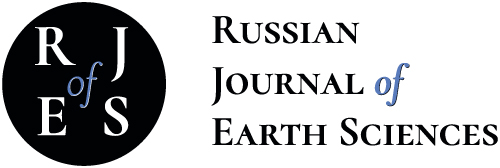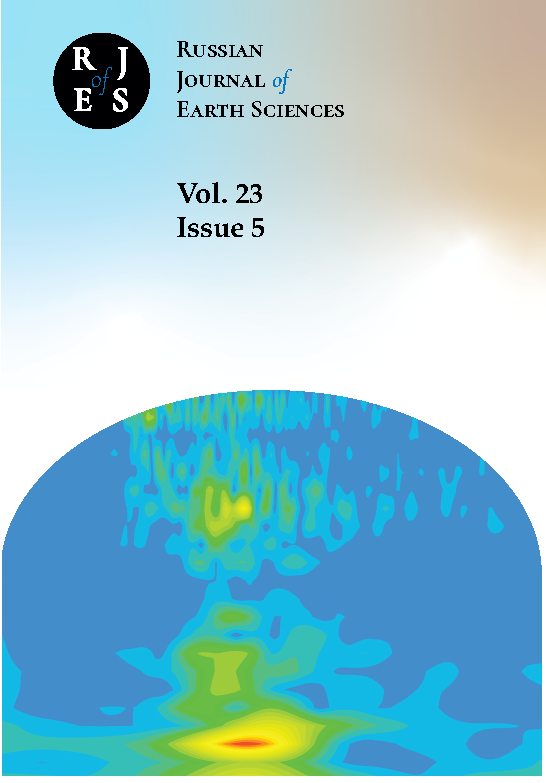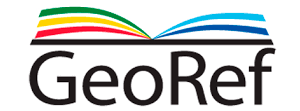Maikop State Technological University
National Research University of Electronic Technology
Shirshov Institute of Oceanology, Russian Academy of Sciences
Moscow, Russian Federation
Moscow Witte University
Maikop State Technological University
Russian Federation
UDC 55
CSCSTI 37.00
CSCSTI 38.00
BISAC SCI SCIENCE
In this article we investigate near-surface air temperature (NSAT) and soil temperature variability at four depths in the region of the White Sea, Murmansk and Arkhangelsk Regions, and Republic of Karelia. For the analysis we used NOAA-CIRES-DOE 20th Century Reanalysis (Version 3) reanalysis data for the 1980–2015 time period and data of bent-stem thermometers at 5, 10, 15, 20 cm depths and extraction thermometers at 20, 60, 80, 120, 240 and 320 cm depths for 1985-2021 time period. Average variability of NSAT is estimated using linear trend as +0.028 ◦C/year. For soil temperature a linear trend is of +0.0137 ◦C/year on surface (0 cm), +0.0136 ◦C/year at 10 cm depth, +0.0142 ◦C/year at 40 cm depth and +0.0133 ◦C/year at 100 cm depth.
Air temperature, soil temperature, bent-stem thermometer, extraction thermometer, NOAA-CIRES-DOE 20th Century Reanalysis V3, climate change, North-West Arctic Zone of Russia
1. Arzhanov, M. M., and I. I. Mokhov (2013), Temperature trends in the permafrost of the Northern Hemisphere: Comparison of model calculations with observations, Doklady Earth Sciences, 449(1), 319-323, https://doi.org/10.1134/s1028334x1303001x. EDN: https://elibrary.ru/RFDBUX
2. Bykhovets, S. S., V. A. Sorokovikov, R. A. Martuganov, V. G. Mamykin, and D. A. Gilichinsky (2007), History of soil temperature measurements at the network of meteorological stations in Russia, Kriosfera Zemli, 11(1), 7-21 (in Russian). EDN: https://elibrary.ru/HZGMVD
3. Gvishiani, A. D., I. N. Rozenberg, A. A. Soloviev, A. G. Kostianoy, S. A. Gvozdik, I. V. Serykh, R. I. Krasnoperov, N. V. Sazonov, I. A. Dubchak, A. B. Popov, E. A. Kostianaia, and G. A. Gvozdik (2023), Electronic Atlas of Climatic Changes in the Western Russian Arctic in 1950-2021 as Geoinformatic Support of Railway Development, Applied Sciences, 13(9), 5278, https://doi.org/10.3390/app13095278. EDN: https://elibrary.ru/RZGITP
4. Intergovernmental Panel on Climate Change (IPCC) (2023), Climate Change 2022 - Impacts, Adaptation and Vulnerability, Cambridge University Press, https://doi.org/10.1017/9781009325844.
5. IPCC (2007), Climate Change. The Physical Science Basis. Contribution of Working Group I to the Fourth Assessment Report of the Intergovernmental Panel on Climate Change, 1206 pp., Cambridge University Press, Cambridge, United Kingdom and New York, NY, USA.
6. IPCC (2013), Climate Change 2013: The Physical Science Basis. Contribution of Working Group I to the Fifth Assessment Report of the Intergovernmental Panel on Climate Change, 1535 pp., Cambridge University Press, Cambridge, United Kingdom and New York, NY, USA.
7. Kostianaia, E. A., and A. G. Kostianoy (2023), Railway Transport Adaptation Strategies to Climate Change at High Latitudes: A Review of Experience from Canada, Sweden and China, Transport and Telecommunication Journal, 24(2), 180-194, https://doi.org/10.2478/ttj-2023-0016. EDN: https://elibrary.ru/WCYVRD
8. Kostianaia, E. A., A. G. Kostianoy, M. A. Scheglov, A. I. Karelov, and A. S. Vasileisky (2021), Impact of Regional Climate Change on the Infrastructure and Operability of Railway Transport, Transport and Telecommunication Journal, 22(2), 183-195, https://doi.org/10.2478/ttj-2021-0014. EDN: https://elibrary.ru/QCIIOE
9. Pavlov, A. V. (2008), Trends of contemporary changes of soil temperature in northern Russia, Kriosfera Zemli, 12(3), 22-27 (in Russian). EDN: https://elibrary.ru/JWEIID
10. Roshydromet (2008), Assessment report on climate change and its consequences on the territory of the Russian Federation. T. 1. Climate change, Tech. rep. (in Russian).
11. Roshydromet (2014), Second assessment report of Roshydromet on climate change and its consequences on the territory of the Russian Federation, Tech. rep. (in Russian).
12. Roshydromet (2022), Third assessment report on climate change and its consequences on the territory of the Russian Federation, Tech. rep. (in Russian).
13. Serykh, I. V., A. G. Kostianoy, S. A. Lebedev, and E. A. Kostianaia (2022), On the transition of temperature regime of the White Sea Region to a new phase state, Fundamental and Applied Hydrophysics, 15(1), 98-111, https://doi.org/10.59887/fpg/k9x4-p8fz-5kz6. EDN: https://elibrary.ru/MJHZBD
14. Slivinski, L. C., G. P. Compo, J. S. Whitaker, P. D. Sardeshmukh, B. S. Giese, C. McColl, R. Allan, X. Yin, R. Vose, H. Titchner, J. Kennedy, L. J. Spencer, L. Ashcroft, S. Brönnimann, M. Brunet, D. Camuffo, R. Cornes, T. A. Cram, R. Crouthamel, F. Domínguez-Castro, J. E. Freeman, J. Gergis, E. Hawkins, P. D. Jones, S. Jourdain, A. Kaplan, H. Kubota, F. L. Blancq, T.-C. Lee, A. Lorrey, J. Luterbacher, M. Maugeri, C. J. Mock, G. W. K. Moore, R. Przybylak, C. Pudmenzky, C. Reason, V. C. Slonosky, C. A. Smith, B. Tinz, B. Trewin, M. A. Valente, X. L. Wang, C. Wilkinson, K. Wood, and P. Wyszyński (2019), Towards a more reliable historical reanalysis: Improvements for version 3 of the Twentieth Century Reanalysis system, Quarterly Journal of the Royal Meteorological Society, 145(724), 2876-2908, https://doi.org/10.1002/qj.3598. EDN: https://elibrary.ru/BYYYPK

















